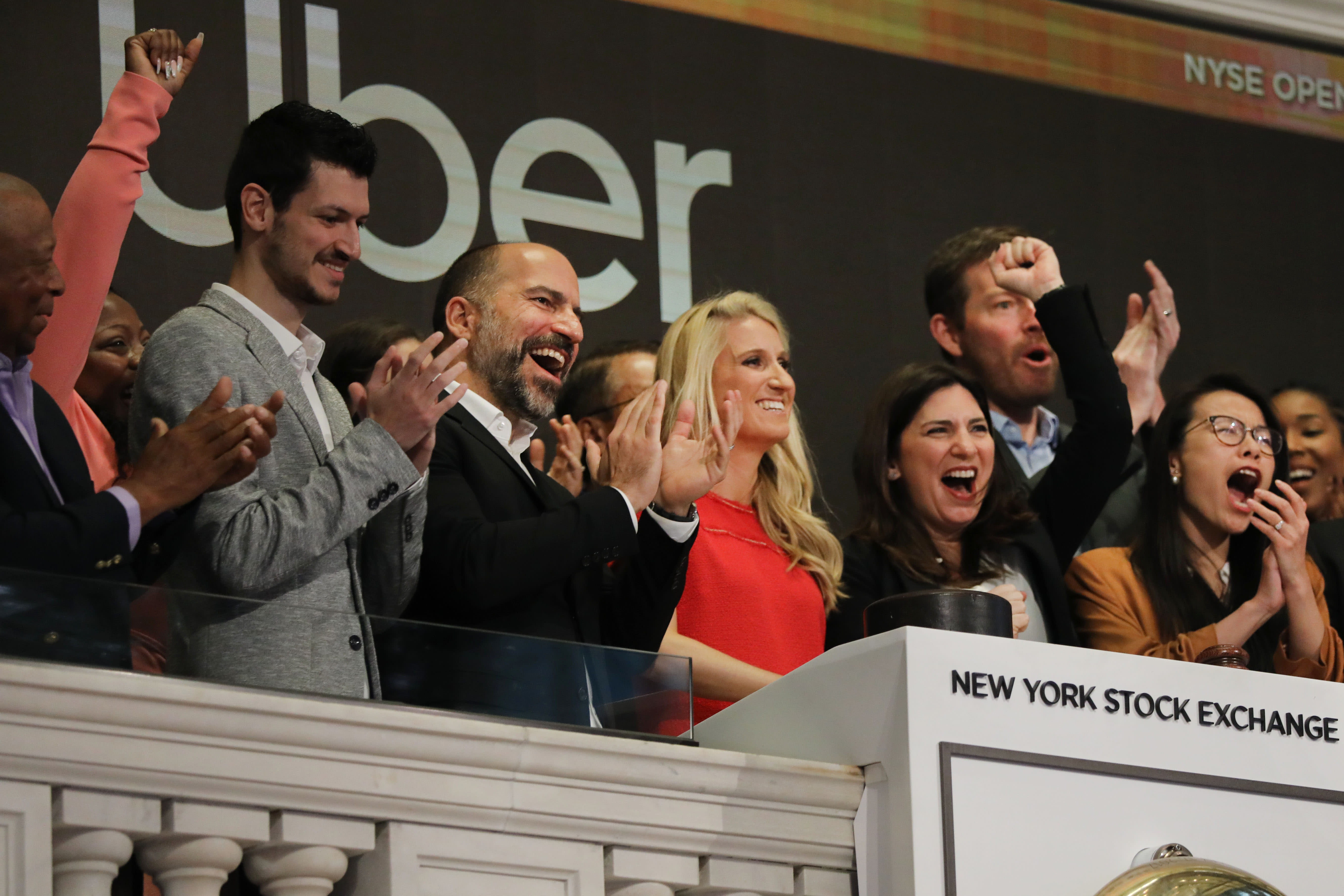
Uber CEO Dara Khosrowshahi (center) joins other employees in ringing the Opening Bell at the New York Stock Exchange (NYSE) as the ride-hailing company Uber makes its highly anticipated initial public offering (IPO) on May 10, 2019 in New York City.
Spencer Platt | Getty Images News | Getty Images
Gig workers won a landmark protection in the $2 trillion stimulus bill that passed in a unanimous 96-0 vote in the Senate Wednesday. The bill now moves to the House, which is expected to vote Friday.
The bill would allow gig workers, such as Uber and Lyft drivers, as well as freelancers and the self-employed to be eligible to apply for unemployment benefits. It would also add $600 per week for up to four months compared to what beneficiaries normally receive.
“I am thankful that the U.S. Senate has ensured that drivers and delivery people—along with all independent workers—will qualify for expanded unemployment insurance under the bipartisan COVID-19 relief package,” Uber CEO Dara Khosrowshahi said on Thursday.
“The 1.3 million Americans who drive and deliver with Uber are facing extraordinary economic challenges. Many are on the front lines of this crisis, keeping their communities moving and getting food to people sheltering indoors,” he said. “Those who’ve lost the opportunity to earn need and deserve this support. I encourage the House to act on this legislation to address this emergency, and I am committed that Uber will do its part to advocate for new laws that permit companies like ours to provide additional benefits for independent workers going forward.”
The protection also marks a win for the companies that employ gig workers and rely on them for their businesses to function. Khosrowshahi appealed directly to President Donald Trump and members of Congress to include relief for gig workers whose income has been significantly impacted by the coronavirus pandemic.
In a letter to Trump this week, Khosrowshahi advocated for a “third way” to classify workers outside of the binary of employee versus contractor to “to remove the forced choice between flexibility and protection for millions of American workers.”
Khosrowshahi’s appeal came after the company’s fierce opposition to efforts to encourage the firm to treat drivers as full employees. California recently enacted a law that aims to reclassify gig workers as employees, which Uber has challenged in a lawsuit with Postmates and two of its contractors. The reclassification would require companies relying on gig workers to take on costs of full-time employers, such as healthcare benefits.
Advocates for the California law say gig workers at Uber and other firms are clearly core to their businesses and therefore should not meet the requirements of a contractor. But Uber has said their model allows workers to form a schedule that meets their needs and gain supplemental income.
Uber will still have a lot of work ahead of it to convince lawmakers that they should create an entirely new classification for its workers. But in the meantime, the provision in the stimulus bill could set the groundwork for Uber to argue in the future for the government to protect workers where their contractor status leaves them exposed.
Leave a Reply